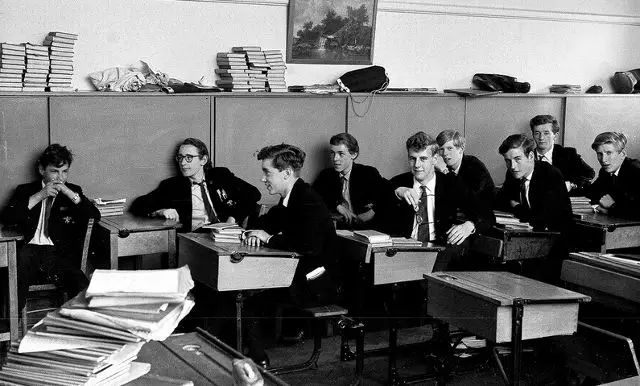Jonathan Dodd‘s latest column. Guest opinion articles do not necessarily reflect the views of the publication. Ed
At my school we were never asked or expected to write stories. Everything in English was either Eng Lang, as in the parts of speech, the conjugations of verbs, the structure of sentences, and how to write official letters, or it was Eng Lit, which involved ‘Set Books’.
I am grateful that I was made to study grammar, not because I still use it properly (whatever that means), but because I understood the vital link between what you think and the language you translate it into so you can communicate your thoughts clearly and concisely to other persons.
The actions are (or are not) acted on
First there is the thought. Then the thought is translated into language, which become instructions. Then the actions are (or are not) acted on. That’s a given in my internal universe. So if you’re going to embark on a plan of action you’d better make sure that your thoughts have been accurately and logically transcribed and checked for meaning and content and veracity.
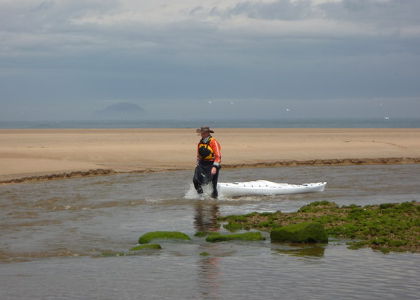
So the best way to make sure you don’t find yourself regularly parked up the proverbial creek without a means of steering or maintaining forward thrust, it’s probably because you haven’t learned the value of grammar.
People actually howled at me
Anyway, it’s a very pleasurable activity getting steamed up about stray apostrophes and when you should use ‘I’ or ‘me’. I honestly maintain that I’m not the grammar snob that people tell me I am when I point these things out, it’s just that they are following specific rules, not for the sake of embarrassing people, but because meaning is god, and grammar is the way meaning is either communicated or fudged.
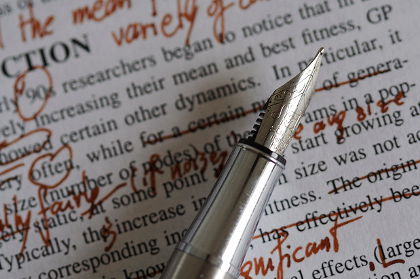
I remember when I first started a writers’ circle and we ran a short story competition. I made it a point that everyone should judge the stories on presentation and spelling and the use of English, as well as the quality of the story itself. People actually howled at me when I told them I had marked their stories down because there were mistakes.
One of my proudest moments
I did point out that most short story competitions come with very strict rules about wordcounts, how to present the work, and the need for accuracy, and that entries which don’t conform are usually binned without repaying the fee, which is a waste of time and trouble and money.

The stories in the next competition were so much improved that I struggled to find any typos or weird punctuation at all. It was one of my proudest moments.
We had to explain why
The other kind of English we studied at school was Eng Lit. There were, as I mentioned above, ‘Set Books’. These would be a pile of books of several types which we had to read and then be able to say intelligent things about. We had to talk about ‘style’, and ‘use of language’, and ‘characterisation’, and we had to be able to write essays on what the author was trying to impart to the reader, and whether he (hardly ever she) was successful or not.
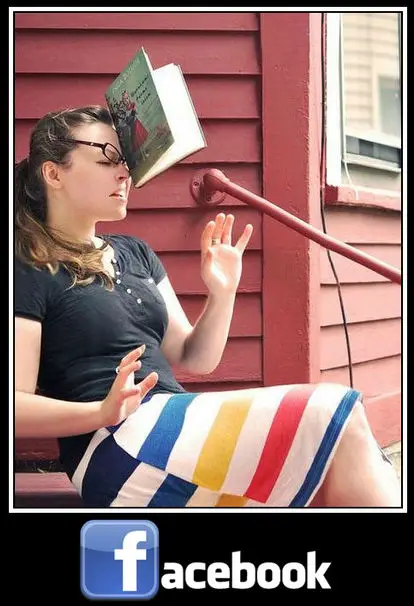
But most importantly, we had to explain why we had come to our conclusions. It was no good saying the book was rubbish, unless you were able to explain why you thought that, and give examples. The most surprising thing, and possibly the core of my whole education from then on, was that you were able to say that one of the ‘Set Books’ was rubbish, and your opinion was accepted provided that you were able to justify it.
Write and write
So, many decades later, when I started to write myself, I found all of this very useful. Not because there are rules to follow, or a way to learn how to become a good writer, but because these are good tools that help you progress. There is only one secret to becoming a good writer, and that is to write and write, with the desire to improve constantly.
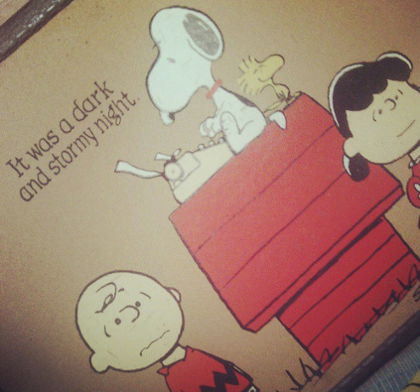
On Friday night I was at Ryde Library for a Short Story Evening. I’ve met lots of people who write. Most of them are either poets or short story writers. The truly masochistic go on to write, or attempt, novels. Poets, for the most part, understand they need to be able to read their work out loud, at least to their poetry group. Short story writers may submit their work to magazines or competitions, but by and large they don’t ever get the chance to read their work out loud to real people.
Several writers actually turned up
I thought I would invite local writers to come and read. I had no idea how it would go, but it was amazing. At least to me. I do understand that amazing means a lot of different things, and reading stories to a roomful of people doesn’t appear to be too difficult at first. But the two things that unite all writers are the intensity of their love for their written words, and the fear that their work will be judged to be not very good.
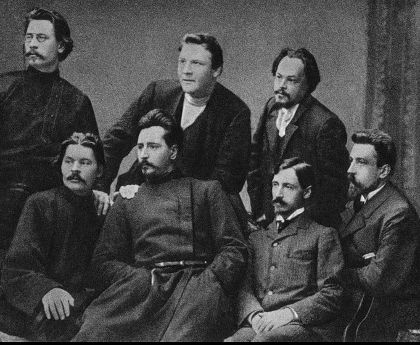
That’s why I was delighted when several writers actually turned up and actually stood up to read their stories. For many of them it was the first time, and it was obviously nerve-wracking. I remember the first time I did it, I think I read about a thousand words in ten seconds flat, and I was bathed in a sheen of sweat.
Sitting and listening attentively
There were stories from the surprisingly young and the thoroughly mature, first-timers and the more experienced, the stories were about animals and redemption and murder, and the end of marriages and life under a dictatorship, some were funny and others were very serious.
The best thing was the roomful of people, sitting and listening attentively to all the stories, quietly and respectfully and with obvious enjoyment and appreciation.
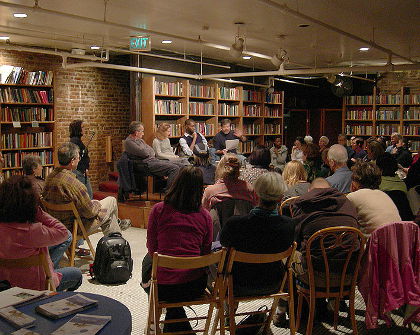
Thank you to my English teachers. You weren’t the fools my cynical young mind thought you were after all.
If you have been, thank you for reading this.
Image: Allan Harris under CC BY 2.0
Image: Richard West under CC BY 2.0
Image: nics_events/ under CC BY 2.0
Image: Free Images under CC BY 2.0
Image: HerManelig under CC BY 2.0
Image: Caren Pilgrim under CC BY 2.0
Image: Public Domain under CC BY 2.0
Image: Joe Mabel under CC BY 2.0

